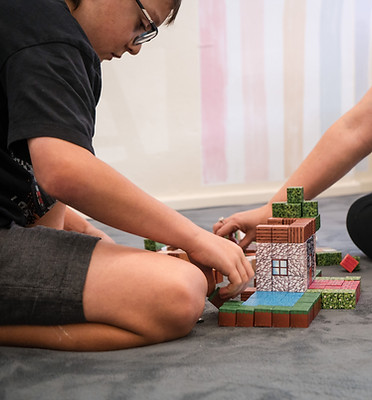
Building everyday skills with play, connection, and confidence.
Developmental Education is all about helping children grow the skills they need to thrive; at home, at school, and in the world around them.
At The Nurtured Village, our Developmental Educator Georgia works alongside children (and their grown-ups!) to build practical, emotional, and social skills through hands-on, playful, and relational support. We meet children where they’re at — and move at their pace.
What We Support
Our developmental education sessions are tailored to each child’s unique needs, strengths, and interests. Support might include:
-
Building routines and independence (like getting dressed, packing a bag, or using the toilet)
-
Learning how to handle big feelings and develop emotional regulation tools
-
Practicing social skills like turn-taking, communication, and making friends
-
Strengthening fine and gross motor skills through play and movement
-
Preparing for school transitions or community engagement
-
Developing functional life skills like following instructions or managing tasks
We don’t rush, we build trust, celebrate small wins, and keep things playful, engaging, and developmentally appropriate.
How It Works
Developmental Education is collaborative — we work closely with parents, carers, and other professionals in your child’s team to ensure consistency and progress.
Whether sessions are in the clinic, in your home, or out in the community, we focus on creating real-world success that builds confidence and independence.
No worksheets. No shame. Just playful, person-centred support that actually works.
Who It's For
Our Developmental Education services are perfect for:
-
Neurodivergent children (Autism, ADHD, PDA, etc.)
-
Children needing extra support with independence, transitions, or daily routines
-
Families looking for practical, relational strategies that stick
-
Kiddos who benefit from hands-on, movement-based learning
Available In:
-
Nuriootpa Clinic
-
Community settings (home, school, or local spaces)
-
Online

